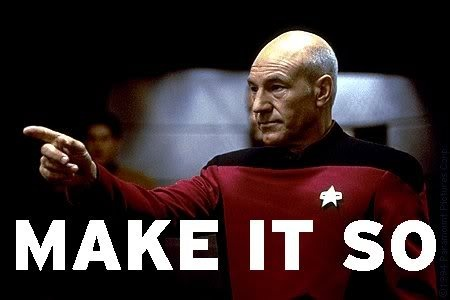
One of the most vivid first-day-of-class memories for me remains my first day of Real Analysis. Part of the reason was the fear-factor of taking my first “100-level math class,” and also the professor’s nonchalant comment while explaining the symbol epsilon: “Epsilon is often used to describe a very small number. For example, one could say, ‘Your grade after the second exam is epsilon.’”
However, equally as vivid was seeing the proof for the existence of two types of infinity (countable and uncountable). The rush of excitement as I began to see how the proof was being formed was a feeling I would begin to crave as I worked through problem sets and sat through many more (countably infinite) classes. I felt I was discovering the immense order and intricacy of this field of mathematics, which at its essence is intended to describe the order and intricacy of nature itself.
Advanced math courses are different from the calculus, linear algebra, and differential equations courses of the past. It is no longer about number crunching. It is about thinking creatively and combining thoughts and ideas together in novel ways to come to new conclusions.
My favorite quote about mathematics is from Paul Lockhart’s essay entitled, A Mathematician’s Lament. In this essay he takes a critical eye to the methods used to teach mathematics, comparing it to a world in which only music theory is taught. Only those who persist for years actually get to hear music. He says, “There is such breathtaking depth and heartbreaking beauty in this ancient art form. How ironic that people dismiss mathematics as the antithesis of creativity. They are missing out on an art form older than any book, more profound than any poem, and more abstract than any abstract.”
Well, congratulations, if you’ve decided to take these advanced math courses, you finally get to hear the music!
(I encourage you to read his article if you get the chance.)
Unfortunately (or fortunately), unlike listening to music as you study or drive in the car, theoretical math is not a passive activity. This is a new way of thinking, a new way of speaking and writing; it is a whole new language. Here are a few tips to help ease that transition:
- Remain engaged in class.
Math professors can be notorious for putting their back to the classroom and writing at superhuman speeds on the blackboard, as the class frantically tries to get everything down before it’s erased. Understandably, it is very easy to go into autopilot and forget to actually absorb what you’re learning. As much as possible, try to think with the professor through each proof. Understand what the assumptions are, what the conclusions are, the type of proof that is being used (for example, a proof by contradiction), and how the professor is moving through each step of the proof. This is definitely overwhelming at first and only comes with practice. Thus, remaining engaged includes reviewing the notes after class and coming to the professor with any questions you may have. Don’t be afraid to say, “I don’t understand why this assumption leads to this conclusion. For example, doesn’t this example disprove the conclusion?” It is okay to question! They want you to be thinking and questioning. The more you do this, the faster you will adjust to this new frame of mind.
- Give yourself ample time to do homework.
Math homework will no longer be something that you can complete in a single sitting. In fact, it will become increasingly difficult to even estimate how many sittings it will take to complete it. Therefore, always begin on an assignment as fast as possible. This will have two advantages: 1. Since the assignment will often relate to the previous class, the proofs and theorems will be freshest in your mind; 2. You won’t feel rushed or frustrated when a solution doesn’t come to you immediately. Unfortunately, the more frustrated you are, the less able you will be to think clearly and complete the assignment. It becomes a viscous cycle. Start early, and that brings us to my last tip:
- Know when to walk away.
Trying to force yourself through a proof can be like trying to compose a new piece of music on command. Sometimes it simply isn’t going to come to you and that’s okay. Don’t let yourself get frustrated. Leave space and move onto the next problem. Come back to the proof later or even another day. Keep the difficult problems in the back of your head. Like a writer brainstorming new ideas for a novel, you’ll be surprised how often solutions spontaneously come to you as you’re doing unrelated activities. Such moments are exhilarating (particularly when they in fact do lead to the solution) and truly make you feel like you are immersing yourself field of mathematics.
---
Mathematics is a field in which you must immerse yourself. However, when you do, you will begin to feel privy to an awe-inspiriting type of beauty. Like any art, it will be at times frustrating and you may feel like you’re hitting your head against a brick wall. Don’t go through it alone – discuss with your peers: learn together and learn from each other. If you’re struggling, consider working with a Cambridge Coaching math tutor. We have one on one tutors available in New York, Boston, and online. Mathematics is the art of thinking, and the more people you listen to, the more your own capacity to think will expand and improve.

Comments